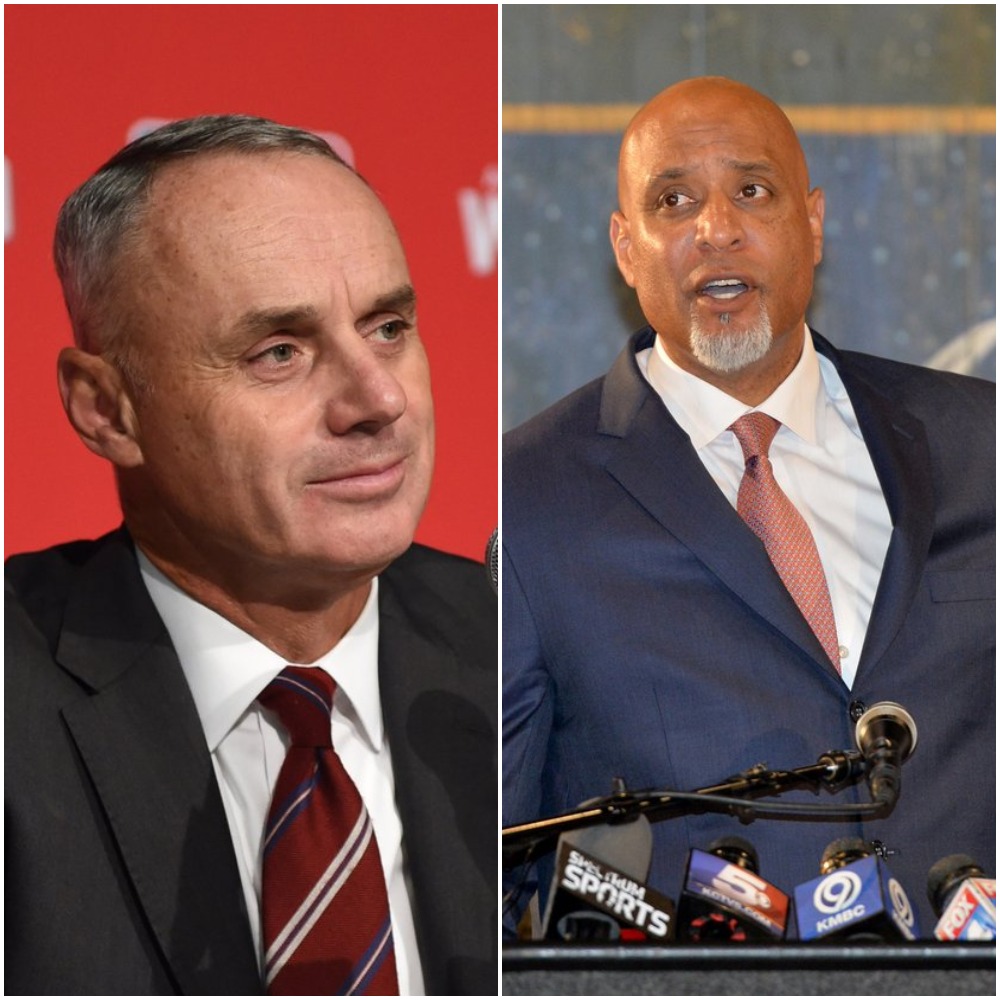
Dr. Matt Swartz is a Labor Economist who has researched and published on MLB labor markets for over a decade at websites including The Hardball Times, FanGraphs, and Baseball Prospectus, as well as at MLB Trade Rumors. Matt created the arbitration salary projection model for MLB Trade Rumors, and co-created the SIERA pitching statistic available at FanGraphs. He has consulted for a Major League team since 2013, in addition to working in his day job as an economist in the cable industry. This article reflects his own opinion and not that of any of his employers or clients.
The MLB Owners and MLB Players Association have been unable to reach an agreement for the financial terms of the 2020 season, and at this point they may not reach one at all. Both sides have focused publicly on the morality of their case, each believing they have the ethical upper hand. Neither has made proposals that reflect their actual negotiating position. That the arguments have primarily focused on morality is perhaps not surprising, but it doesn’t create fertile ground for an actual substantive negotiation. I studied bargaining theory, and I don’t remember anything about how to win a moral argument. The ethics are what they are, and any reasonable person could make either side’s case if they really tried. The union seems to be winning the PR war thus far, as fans seem to mostly blame owners, but supportive tweets from fans are not convertible into currency.
At its core, what we have is the following set up: The presumptive default position, if no agreement is reached, is that commissioner Rob Manfred will order a roughly 50-game season with full prorated salaries. If the sides do reach an agreement, they may play as many as 80 games, and be able to split the associated revenue. They also may be able to add revenue through other avenues like expanded playoffs, and they could split that revenue too. Those are the gains from a negotiated agreement. They can be split in a way to make both parties better off.
Both sides have accused the other of not bargaining in good faith, but neither side has offered the other side anything they would plausibly accept. Instead we have seen the owners repeatedly try to offer players only slightly more than the same salary total as they would with a 50-game season, effectively asking for all the gains that would accrue from a negotiated agreement while leaving the players to absorb greater output and greater risk (both from the usual risk of playing baseball and the additional risk attendant to the global pandemic). The players similarly have failed to offer the owners anything that would lead to more profit than they would accrue in the event of a 50-game season with unexpanded playoffs. It is not surprising negotiations have gone nowhere.
At this point, an agreement for a better, longer season in 2020 is doubtful. But 2021 is right around the corner, and there is no vaccine for COVID-19 yet. We may not see fans in the seats in 2021, or at least we may not see stadiums filled to capacity. So we may see a replay of this argument in 2021 as well. It’s imperative that both sides recognize their position and negotiate accordingly. This acknowledgement could easily flip the script and lead to an expedited deal for 2020 already.
Let’s start with what should be obvious and unarguable.
Unarguable Point A:
Any agreement should see the players earn substantially more than they would have in a 50-game season.
Unarguable Point B:
Any agreement should see owners make more profit than they would in a 50-game season.
Nothing floated publicly has even come close to meeting these simple criteria.
The starting point here is actually fairly simple. Forget about inching towards a middle ground when neither side is willing to budge. Instead, begin by figuring out just how much extra revenue is associated with 30 extra games and an expanded postseason. Then, split it in half. The players’ salary total is equal to that half plus their prorated salaries for 50 games. Both sides may try to argue for a bigger piece of the pie, but either side would be crazy to say no to half of this revenue—which is much more than the zero extra revenue they would see otherwise. The players don’t need the owners to open their books on any more than is necessary to estimate this amount. The owners don’t need to ask the players to sign any waivers or anything else that isn’t already negotiated. Anything on top of this baseline can be negotiated after setting the above in writing and shaking hands (but not actually).
Offers could get more complicated and cover more territory. This is especially true with the risk of no fans or fewer fans in 2021, and with the CBA expiring after 2021. But the essential 2020 issue can be resolved in a fairly simple manner that makes each side better off in the short term while limiting the long-term damage to the sport. In subsequent pieces, I’ll discuss the fundamentals of baseball’s free agent market and how players might want to approach the inequities that have arguably developed over the last couple years. But for now, let’s just agree that owners, players, and fans can all be made much better off very quickly. Get it done before dinnertime.
"easy" - Google News
June 15, 2020 at 11:25PM
https://ift.tt/2N1r4y0
Resolving This Player-Owner Dispute Should Be Easy - MLB Trade Rumors
"easy" - Google News
https://ift.tt/38z63U6
Shoes Man Tutorial
Pos News Update
Meme Update
Korean Entertainment News
Japan News Update
Bagikan Berita Ini














0 Response to "Resolving This Player-Owner Dispute Should Be Easy - MLB Trade Rumors"
Post a Comment